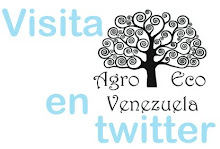Theresa Wei Ying Ong and Wenying Liao
sábado, 27 de junio de 2020
Agroecological Transitions: A Mathematical Perspective on a Transdisciplinary Problem
Theresa Wei Ying Ong and Wenying Liao
Theresa Wei Ying Ong and Wenying Liao
In the face of climate change, rising hunger and mass extinctions,
scholars stress the need to transition food systems from fossil
fuel-dependent conventional farms to agroecological alternatives that
can store carbon, improve food security and harbor biodiversity. Theory
provides a systematic approach for organizing knowledge on
agroecological transitions across the natural and social sciences and
summarizing the primary needs of future research. This paper reviews the
socio-ecological literature related to agroecological transitions from a
mathematical perspective that is derived from complex systems and
critical transition theory. We organize the literature according to
mathematically tractable concepts, including syndromes of production,
agents, barriers and drivers of change that operate across three major
frameworks of analysis: socio-ecological, socio-technological and social
norms and networks. Our approach embeds the current agroecological
transition theory within a critical transition framework that considers
the stability of peasant and capitalist syndromes in response to various
inhibitors and drivers of change. We find that the majority of our
theoretical knowledge of food systems change is derived from the social
sciences and limited primarily to examples from the Americas. Our work
suggests a need for broader regional representations of change and
transdisciplinary work aimed at better understanding how biophysical
factors collide with socio-political conditions to hinder or reverse
food systems change. Though scale and context are important
considerations, we find that theory can generate general mechanisms that
link separate case studies. For example, drivers of food systems change
that shift balances between the costs and benefits of peasant and
capitalist modes of production may be particularly important for
explaining poverty and gilded traps in agriculture. We discuss this and
other lessons learned from taking a theoretical perspective on
agroecological transitions.
Conceptual diagram of key agents and interactions in the transformation
of food systems. Key decision-making agents include farmers, consumers,
markets and institutions (bolded). We identify three main frameworks
used to study agroecological transitions in the literature: (1)
socio-ecological, (2) socio-technological, and (3) social norms and
networks frameworks. The third framework describes the structure of
interactions of the first two frameworks. The three frameworks are also
connected through analyses of interactions amongst farmers, consumers
and markets (dashed circle). Their behaviors influence one another and
spur changes in both the environmental sustainability or degradation and
technological development of farming practices. We highlight three main
areas of research on agroecological transitions within these
frameworks: synergies and trade-offs in ecosystem services,
technological and structural lock-ins, and social norms and network
structure.
.
Suscribirse a:
Enviar comentarios (Atom)











No hay comentarios:
Publicar un comentario